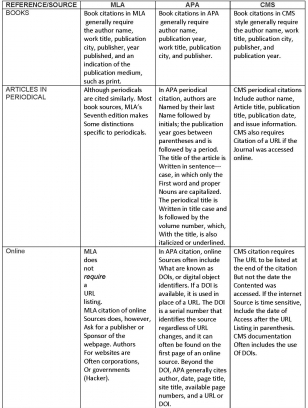Blogging & Citations
Published on February 25, 2014
Published on Wealthy Affiliate — a platform for building real online businesses with modern training and AI.
After reading and responding to a fellow WA user (egonsarv) about what we can use in our blogs, articles, postings, etc. from other sites. I decided to write a blog post about this subject. My experience in this subject matter is threefold. 1) I have been an online marketer for the past 13+ years as a real estate agent/investor; and I have been involved with some kind of affiliate marketing in the same time frame. 2) I am currently a student studying web design. In the school setting, you have to cite all over your references, or you will get dinged, maybe even sued, for plagiarism. 3) I have had a scary experience with one of my affiliate promotions.
In the beginning of my online experiences, I had to learn quickly how to market myself and get traffic for my new real estate career. Plus, I had to learn about contracts, selling and fiduciary duties and other ethical quagmires associated with advertising in my new career. Talk about information overload at the time and lots of Shiny New Object/s to use and “display” to/for your potential clients AND real estate associates.
As a newbie in affiliate marketing, I checked out Clickbank. Their program seemed easy enough, and all I had to do was copy and paste. Yeah!! I don’t remember what I was promoting at the time, probably something “Green”, but I do remember an email message I received telling me I had violated some copyright laws. “OH NO!!!” “YIKES” Plus, there
was a reference to a lawsuit of $20,000+ for my indiscretion…..OOPS!! Instead of freaking out and rushing myself to the nearest ELM (emergency lawsuit litigator), I calmly sent a reply to the respondent and stated I had merely used the Clickbank “hop link” to support my advertising. Whew!! Close call, that one.
Ready to put this into action?
Start your free journey today — no credit card required.
In order to be safe, it is a good idea to familiarize yourself with APA, MLA and CMS formatting styles. These acronyms provide different methods for source documentation for authors, bloggers, students, people, etc. Briefly, APA stands for the American Psychological Association; and it provides methods for source documentation across various media (written, video, Internet) that is used in most social sciences courses. MLA stands for Modern Language Association; and it provides methods for source documentation that is used in most humanities courses. CMS, or the Chicago Manual of Style, provides methods for source documentation that is used in most history courses. I have created a small table to show some basic ways to give credit to your source documentation/s. There is a link at the end of this post to view the full Citation Chart provided by Purdue OWL

This is a small example of how you can credit your research activities and avoid any copyright law suits and other types of questionable online marketing activities. Go here Chart
to see detailed information about providing source documentation for your online activities as well as your publication activities.
Share this insight
This conversation is happening inside the community.
Join free to continue it.The Internet Changed. Now It Is Time to Build Differently.
If this article resonated, the next step is learning how to apply it. Inside Wealthy Affiliate, we break this down into practical steps you can use to build a real online business.
No credit card. Instant access.